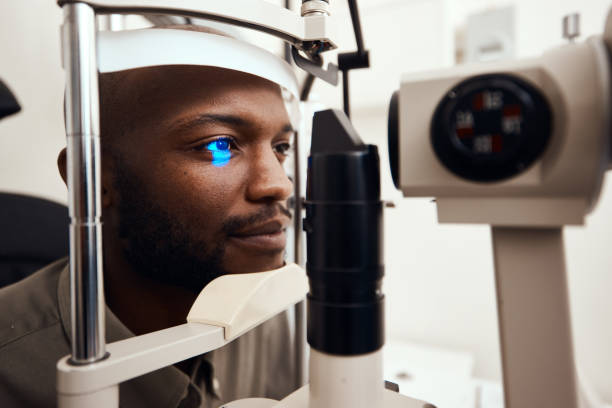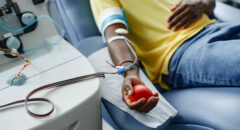
Making sure you stay up to date with all of your appointments is important. Scheduling your annual check-up for different areas of your body is vital in keeping up with a healthy lifestyle. Three very important exams to get are physicals, pap smears for those with a vagina and eye exams. For everyone, a yearly eye exam is essential for more reasons than just to see where your sight levels are at. A scheduled eye exam could be saving you from worsening symptoms you didn’t even know you could get.
Why It’s Important To Get A Routine Eye Exam
Getting a routine eye exam is necessary. First and foremost, your eyes need to be checked to know where your vision stands. If you have trouble seeing near or far distances or struggle with light or the ability to see when driving at night, then an eye exam can help you determine what can help correct your vision. Correcting your vision improves your everyday life.
Secondly, a routine eye exam can show if there are any hidden medical issues that of course would be impossible for you to know of without an exam. This could show you if you are living with an eye disease such as cataract, glaucoma and/or others.
If you are living with an unknown eye disease and you go too long without getting the proper help and treatment, this can result in loss of sight. A simple check-up can help prevent that possible outcome.
RELATED: 5 Signs You Need To See Your Eye Doctor
What You Could Be Unaware Of
Getting an eye exam annually is also important to do if you are living with certain illnesses and diseases. Some diseases show that they may be getting worse, through your eyes. There are many things you could be unaware of that are happening and an eye exam, in some cases, can actually tell you what may be going on.
For example, say you are living with high blood pressure and are unaware of it, an optometrist can detect that you may have high blood pressure because eye problems are a symptom of high blood pressure. The same goes for diabetes as well. If you are unknowingly living with diabetes or prediabetes, the eye doctor could bring awareness to it with a check-up.
You could also be living with eye damage due to an already known disease since it can cause damage to other areas of the body, like sickle cell disease.
Living With An Illness Makes Eye Exams Crucial
An Illness like sickle cell disease is inherited and this means that there’s no real way to prevent yourself from having sickle cell disease if both of your parents have it. With that being noted, sickle cell disease has the ability to cause eye damage over time, which is why regular eye exams are crucial.
Sickle cell disease can cause changes to the blood vessels in the retina of your eye (back). Sickle cell disease can also cause blockage to the blood vessels in your eyes, which causes a decline in your vision and needs to be treated asap. Seeing an eye doctor often when living with a disease that causes eye damage like sickle cell is needed to treat and prevent further damage.
RELATED: 10 Ways Your Eyes Are Telling You Something Is Wrong
How To Schedule An Eye Exam With The Right Type Of Doctor
There are three different types of eye specialists out there, an ophthalmologist, an optometrist and an optician.
An ophthalmologist specializes in medical and surgical treatment of the eyes and prevention of eye disease and injury while also being able to give routine exams. This type of eye doctor can be booked if you are someone who is living with an eye disease, a disease that causes eye damage, or someone who just wants a check-up.
An optometrist is someone who examines, treats and diagnoses certain issues with the visual system. They can prescribe glasses, contacts and medications to treat eye disease.
An optician is someone who works on prescribed glasses, such as creating them, repairing them, replacing them, etc.
Who you schedule an appointment with will depend on what your needs are but it’s always good to start off with an optometrist so then they can recommend you to an ophthalmologist if necessary.
Your eyes are important, so make sure you’re doing everything you can to care for them.









